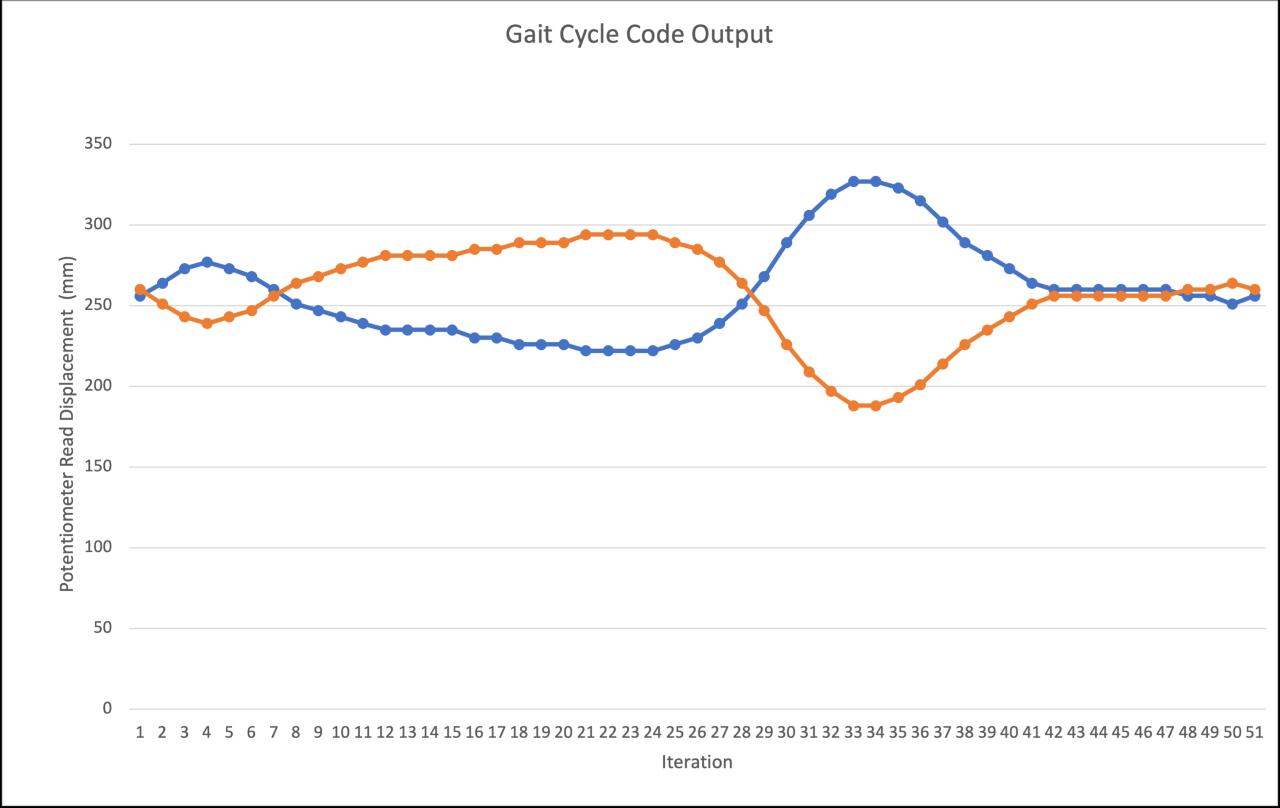LEG EXOSKELETON FOR MULTIPLE SCLEROSIS
ASHLEY O'CONNOR (ME) JOSHUA WILSON (ME) TRENTEN PATTON (BE) JOSIE ALLEN (CS)
BACKGROUND
This prototype focused on the ankle alone, we use data describing the ankle joint angle throughout the gait cycle to determine our minimum required range of motion.
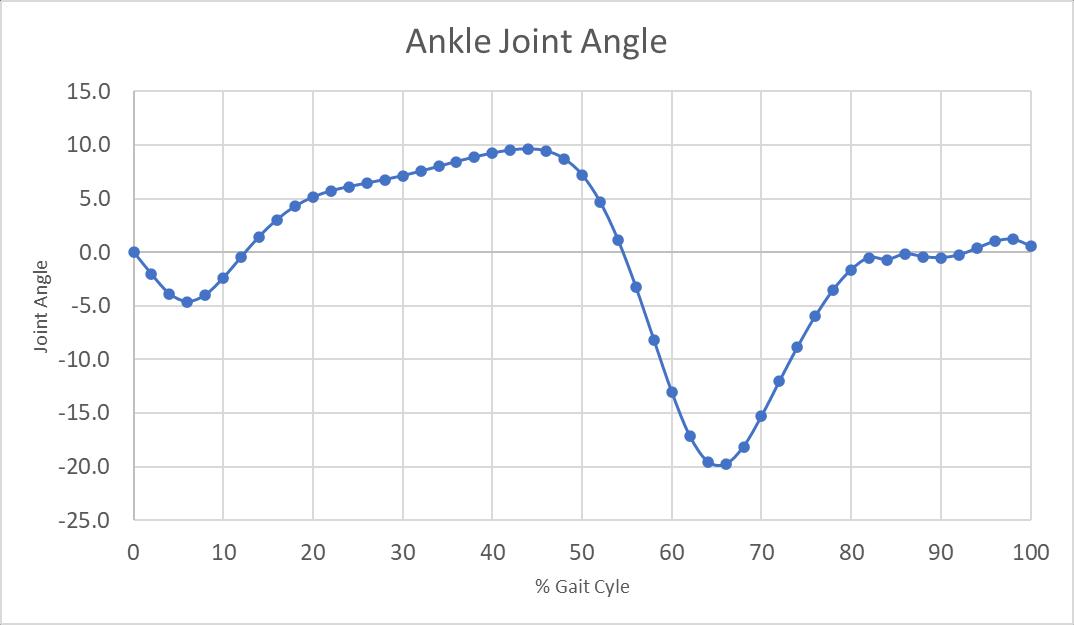
FINAL DESIGN
Our prototype utilizes linear actuators and recorded gait cycle data to replicate proper ankle range of motion. By pulling a foot brace with the actuators, we have shown that our prototype has the potential to re-enable our clients' ability to walk. This would greatly improve mobility and enhance the overall quality of life for individuals with walking disabilities.
OBJECTIVE VALUE PROPOSITION
Create a proof-of-concept prototype to validate the usage of linear actuators as a propulsion mechanism for future softsuit exoskeleton prototype.
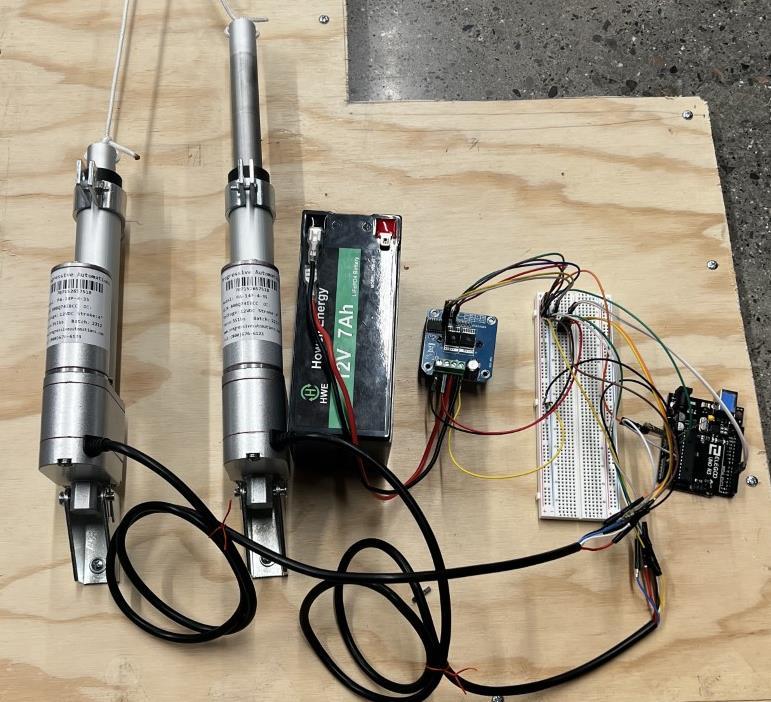
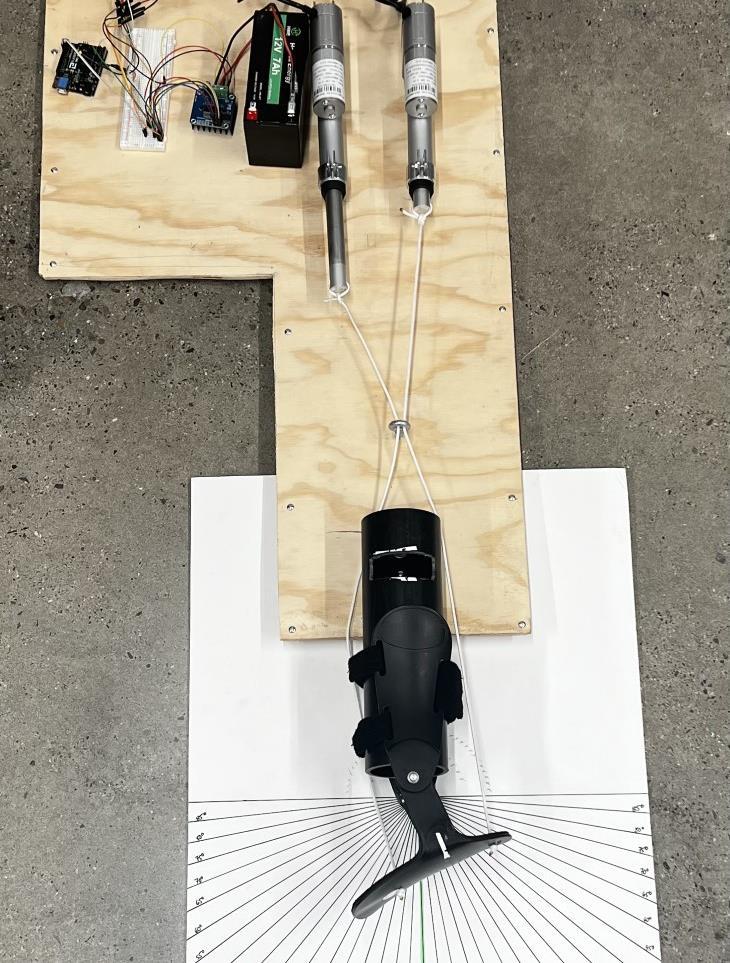
https://www.orthobullets.com/foot-andankle/7001/gait-cycle

The average range of motion for a normal walking gait is 10° dorsiflexion (toes up, positive values) to 20° plantarflexion (toes down, negative values) (Winter 1990)
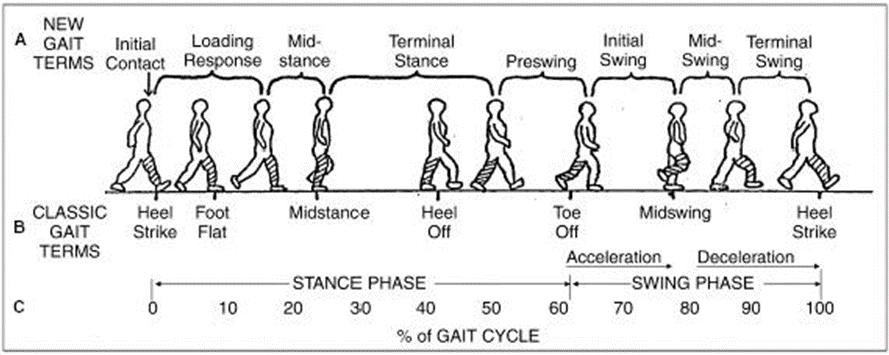
There are at least 35 million adults in the United States alone that are impacted by conditions that impair mobility. Powered assistance devices are notably expensive and hard to come by The goal of this capstone design is to aid in the development of a future exoskeleton by finding a propulsion mechanism.


KEY REQUIREMENTS
Achieve ankle ROM of 30° total, 10° dorsiflexion and 20° plantarflexion
Follow joint angles that correspond to joint angles within a natural gait cycle
Function without warping
FUTURE RECOMMENDATIONS

Develop a form fitting foot brace
Acquire faster and stronger linear actuators
Implement spring series elastic mechanism
ACKNOWLEDGEMENTS
Client: Kevin Rhodes
Instructors: Dr. Steve Beyerlein
Dr. Joel Perry, and Dr. Eric Wolbrecht
Mentor: Jackson Stump
Made Possible by the Dean and Cindy Haagenson Endowment
A B C D
A) Linear Actuators
B) 12v Battery
C) Dual H-bridge Motor Driver
D) Circuit Breadboard
E) Arduino Uno
VALIDATION
Enlarged protractor to ensure proper ankle range of motion is met using video analysis
Performed calibration of position output of actuators to ensure accuracy of measurement
Graphing of data from actuators and comparing it to original gait cycle data
